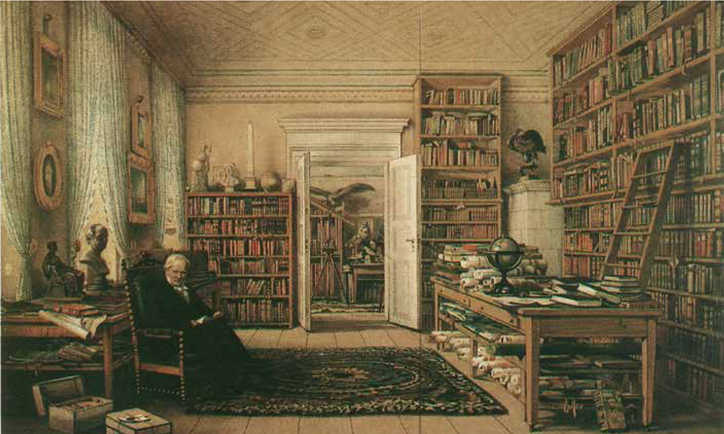What has Alexander von Humboldt, who was born 250 years ago (1769 - 1859), to do with global climate change and sustainability today? Alexander von Humboldt revolutionized the conception of nature by scientifically approaching it as an interconnected living web - and in doing so, inspired countless scientists, environmentalists, writers and artists alike. On the 250 Year Anniversary of Humboldt’s birth, we need such a global perspective more today than ever: an appreciation that all things are connected and that harm caused in one place, always has implications elsewhere and for the whole. Perhaps these ideas can help to stimulate alternatives - whole-system thinking and the pursuit of endeavors that rejuvenate the natural world. Humboldt had respect for nature, for the wonders it contained, but also as the system in which we ourselves are an inseparable part.
In a time when scientists are trying to understand and predict the global consequences of climate change, Humboldt’s interdisciplinary approach to science and nature is more relevant than ever. He refused to be tied to one discipline and insisted that all and everything was linked — humans, land clearing, plants, oceans, biodiversity, atmospheric changes, temperature, and so on. Humboldt’s nature was a global force. Time and again he examined the connections between nature and science, art and society, and has taken a cosmopolitan perspective on the world as a whole. When nature is perceived as a web, its vulnerability also becomes obvious. Everything hangs together. If one thread is pulled, the whole tapestry might unravel.
The Science Film Festival 2019 aims to illustrate the relevance of this complex approach to the 21st century, in particular for students and young people, and raise awareness of environmental issues, climate change and sustainability.
 © New Philosopher
© New Philosopher
 © New Philosopher
© New Philosopher